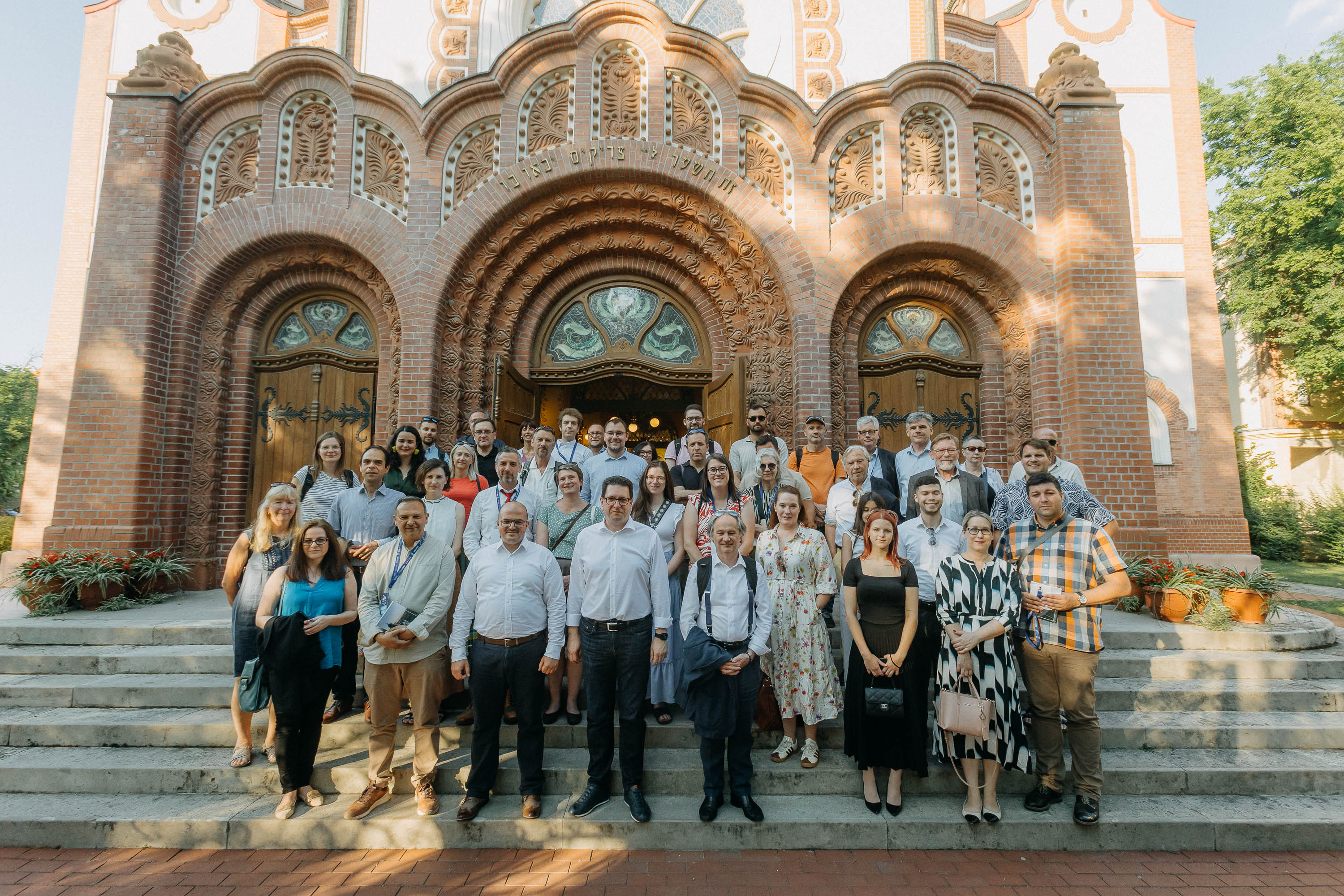
Forum of European Minority Regions: we are the Europeans of the future!
30.06.2025Minorities in cross-border regions often serve as a bridge between countries, enhancing trade and cultural ties between each other. A common language helps to establish contacts, which in turn contributes to investments. Minorities in cross-border regions also foster cultural exchange between countries, the understanding of the neighbour country and a peaceful co-existence. Experts, minority representatives and decisionmakers from all over Europe gathered for two days in Novi Sad * Újvidék, Serbia on 27-28 June to discuss the ways minorities contribute to cross-border cooperation.
>> Check out the photo gallery of the event! >>
The discussions convinced everybody that there is great potential for growth in improved cross-border cooperation, and minorities can do this particularly well because of the multicultural skills they possess. “We are the real Europeans, we are the ones who are mobile and go across the borders, and we have to have self-confidence, as we are the Europeans of the future”, as FUEN Vice President Gösta Toft put it in his closing remarks. He highlighted the role of regional autonomies – such as the one in place in the province of Vojvodina – in facilitating collaboration by preventing conflicts and bringing economic growth.
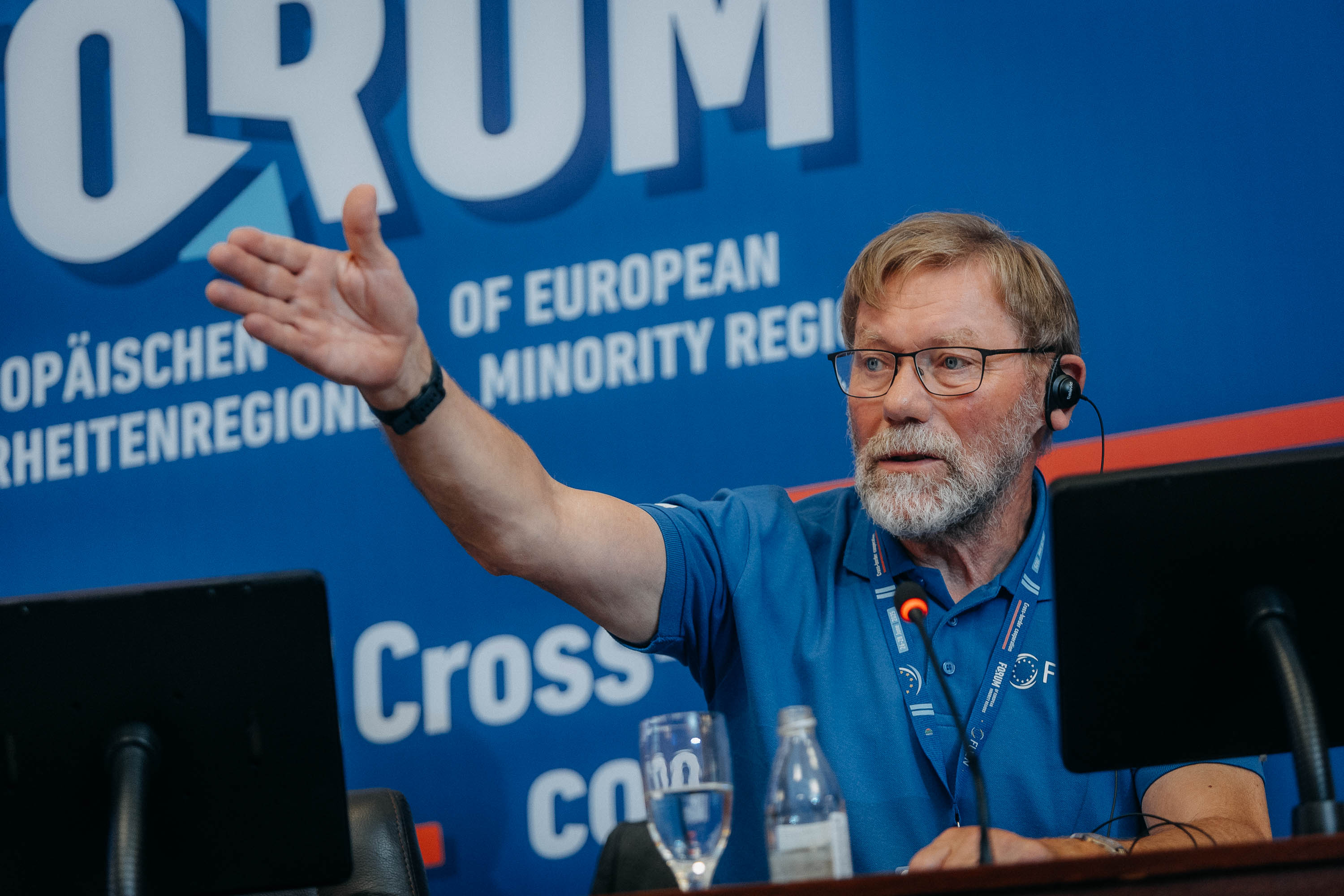
He also mentioned the negatives: “Unfortunately this role of the minority communities is not always recognized, not by the member states and not by the EU: the EU should facilitate it, and minority communities should be supported by the professional networks. The recognition of minorities and a European standard for minority rights is needed, as it would unleash many creative forces in Europe”, he pointed out.
The first day of the Forum offered an in-depth look at the autonomy model of the Autonomous Province of Vojvodina through the eyes of the National Councils of the Hungarian, German and Macedonian minorities and a field trip to Subotica * Szabadka, keynote speeches on cross-border collaboration by the experts of the Association of European Border Regions (AEBR) and the Central European Service for Cross-border Initiatives (CESCI) and a roundtable, where representatives from different European regions detailed how collaboration works in practice.
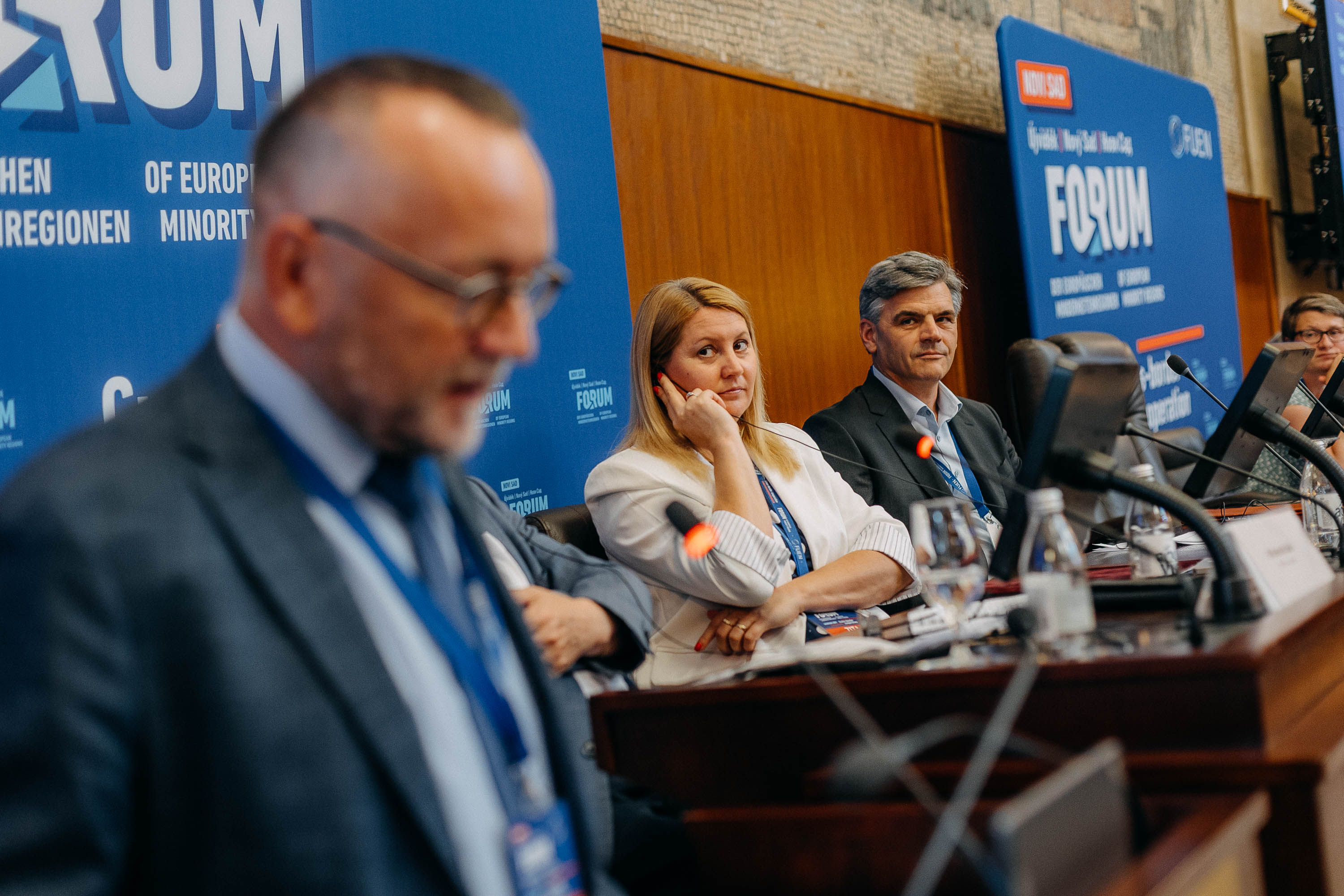
The second day’s first topic was the integration perspectives and the role of minority communities in this process. Both MEP Annamária Vicsek and Ljubica Djordjević, Senior researcher on minority protection in EU accession countries at the ECMI criticized the EU’s decline of interest in minority issues, citing as concrete examples the refusal of the Minority SafePack Initiative and the fact that minority rights are not high on the priority list of the integration process. They also mentioned the dwindling popularity of the EU both inside it and in the accession countries, a problem which needs to be addressed.
A very specific area was next on the agenda, a discussion on the role of sports in minority communities and in cross-border collaboration, with the participation of EUROPEADA team leaders of Serbs in Croatia and Croats in Serbia, the Slovenes in Italy (hosts of EUROPEADA 2028) and the president of Kernow Fa, the football team of the Cornish from Cornwall. Stories on how the Serb and Croat minorities prepare together for international competition, on how sport can give visibility and a sense of belonging to the users of a little-known language in the UK, on how minorities contributed to the fall of the iron fence built between Italy and Yugoslavia were shared in a debate focused on what minorities can give to sport and sport can give to minorities.
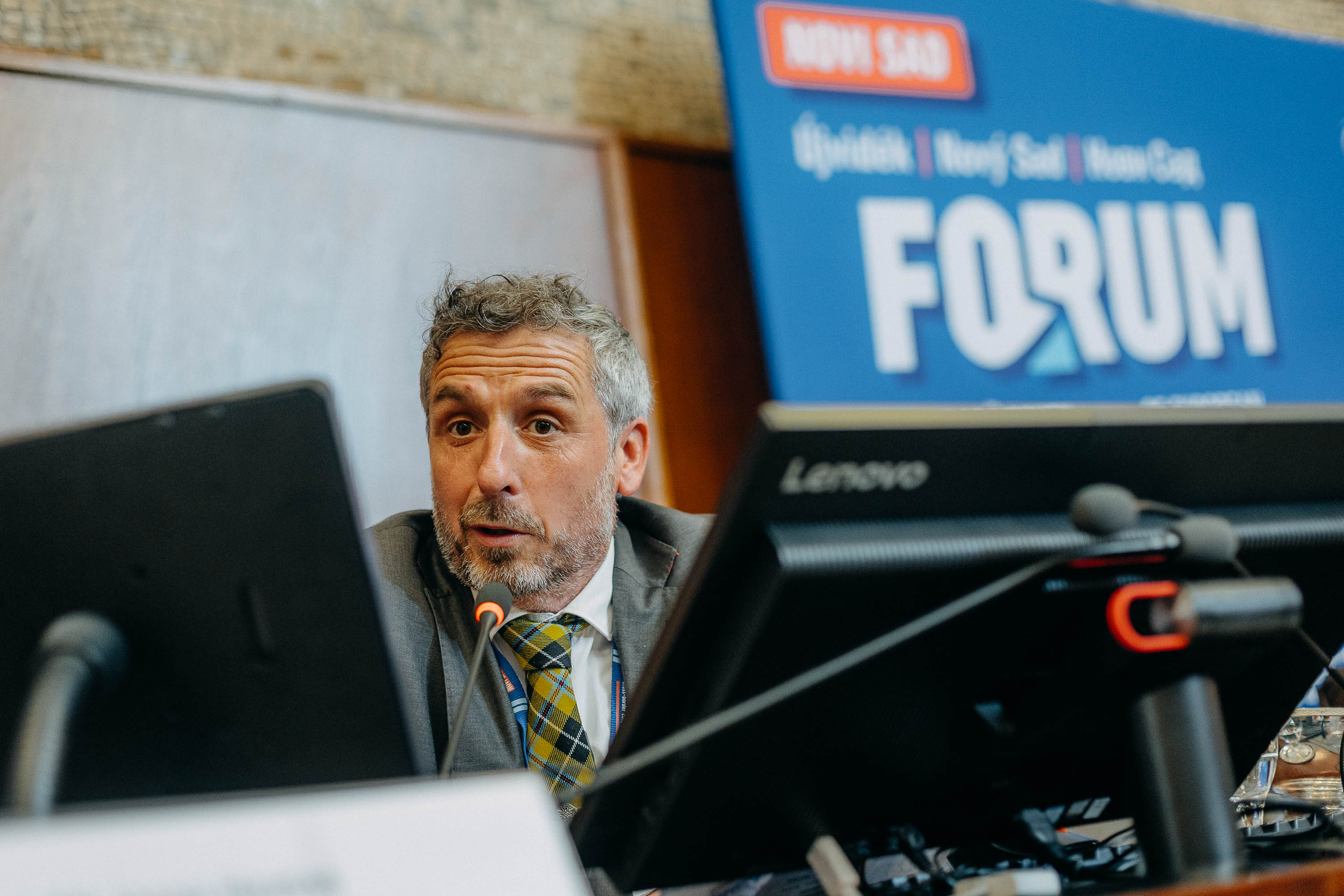
The ninth edition of the Forum of European Minority Regions showed the value of minorities living in border regions, highlighted best practices and persisting problems, and gave the 140 participants a chance to exchange ideas and learn from each other. See you again at next year’s Forum!
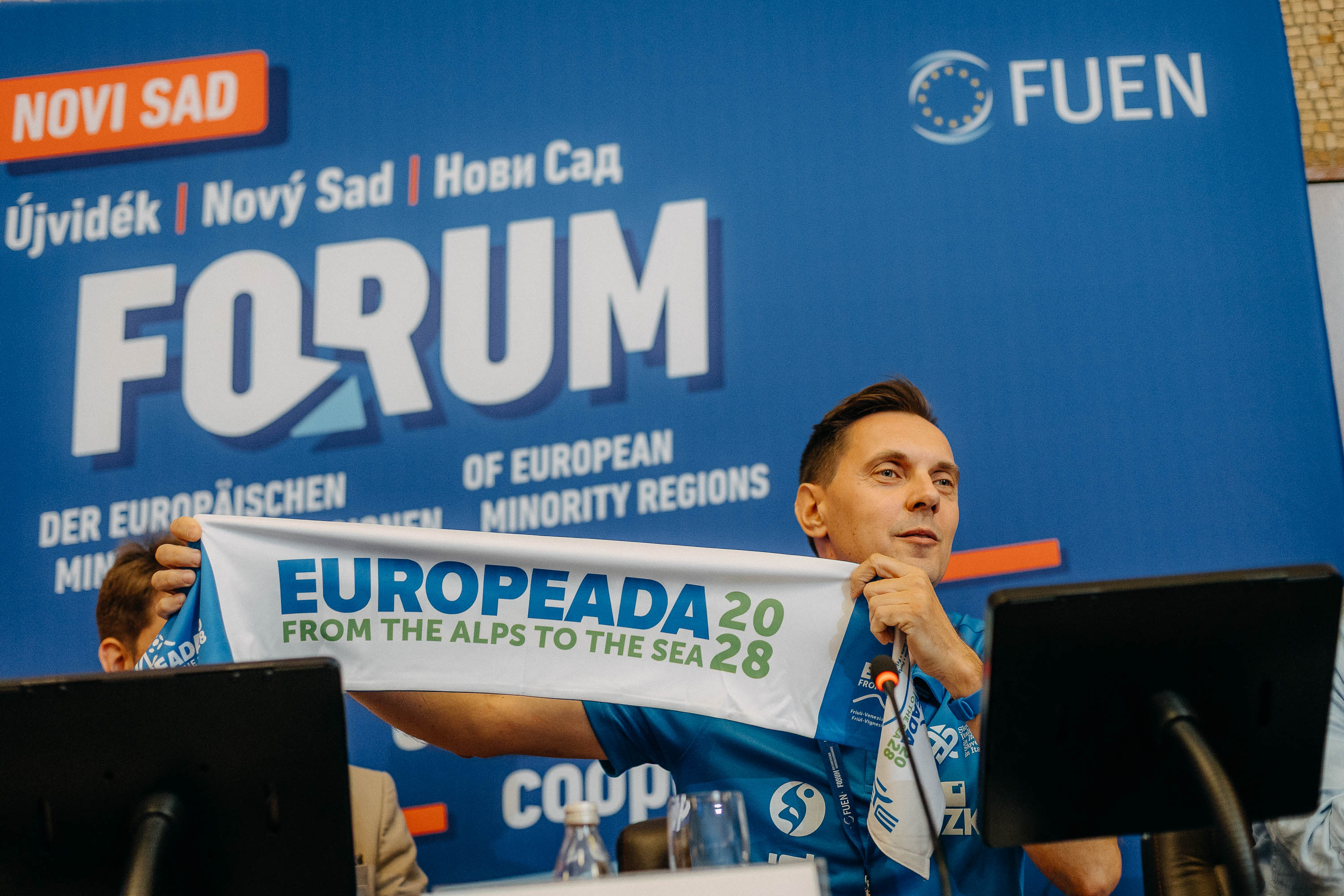
Pressemeddelelser
- FUEN wishes you a peaceful Christmas season, restful days and a bright, hopeful start to the new year!
- FUEN calls on the EU to act over systematic ethnic-based land confiscations in Slovakia
- Women of Minorities conference in Budapest calls for structural change to ensure equal political participation of minority women
- FUEN President Olivia Schubert at UN Forum on Minority Issues in Geneva
- "Laboratory of Peace": 28th Seminar of Slavic Minorities held in European Capital of Culture Gorica/Gorizia
- Equality in Political Participation and Representation: Third “Women of Minorities” Conference to Be Held in Budapest
- FUEN Working Group on Education discusses challenges and future of minority schooling in Europe
- 28th Seminar of Slavic Minorities in Europe to take place in Gorica/Gorizia, Italy
- Olivia Schubert in her first interview as FUEN President
- FUEN Assembly of Delegates elects new leadership – Olivia Schubert becomes new President














